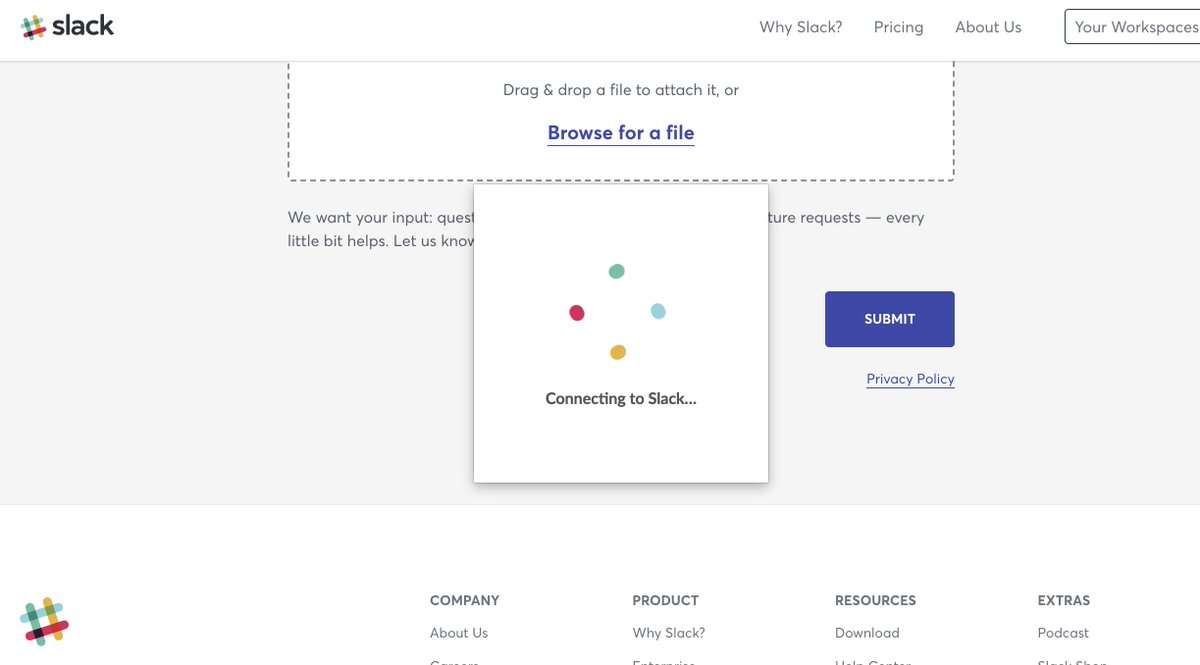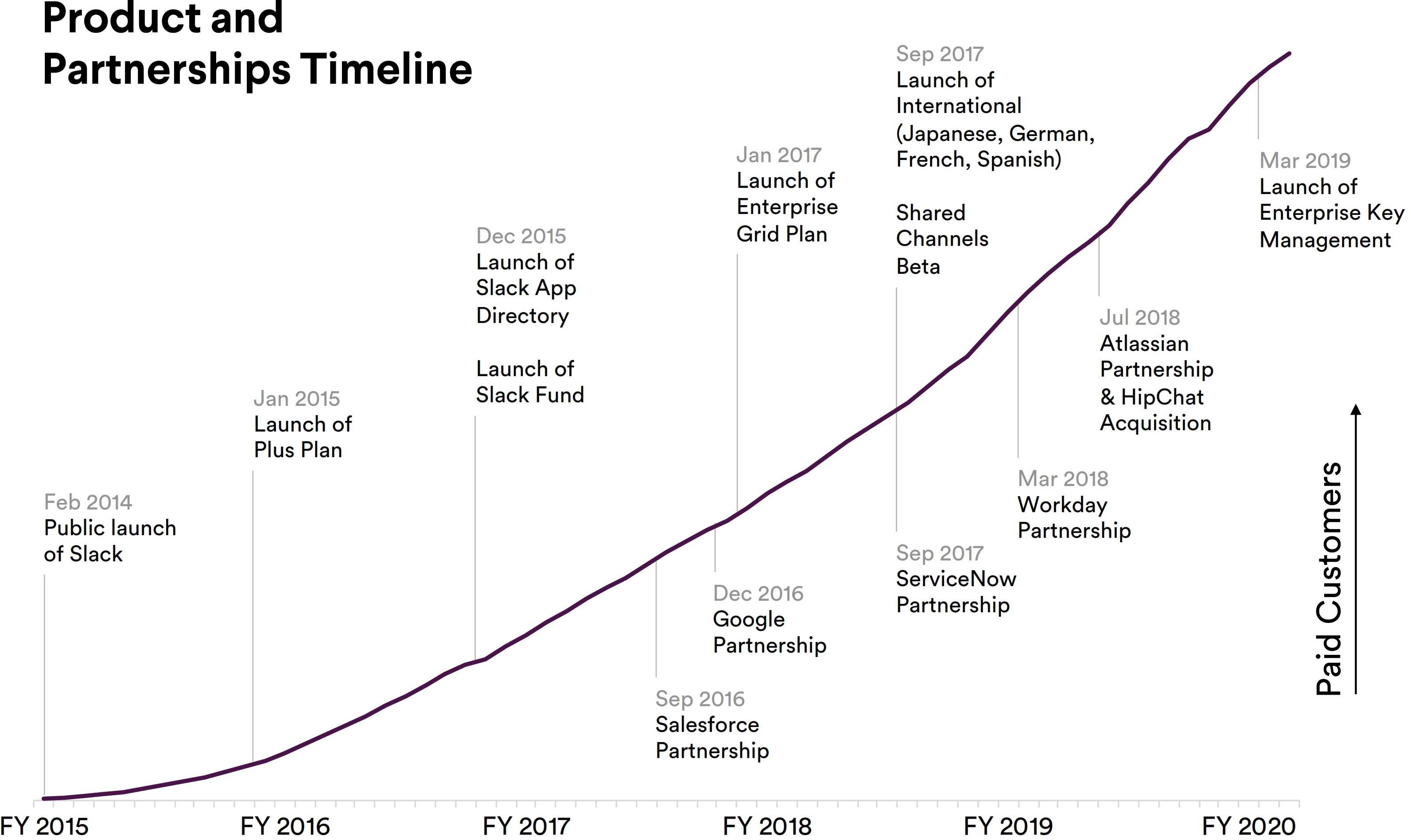Slack Parent Company
Slack enjoyed a huge first quarter as people worked from home due to COVID-19. Here's what Slack co-founder and CEO Stewart Butterfield told Yahoo Finance. Slack is a proprietary business communication platform developed by American software company Slack Technologies. Slack offers many IRC -style features, including persistent chat rooms (channels) organized by topic, private groups, and direct messaging.
 Nicolás Rivero
Nicolás RiveroTech Reporter
Slack, the workplace messaging app used by 12.5 million people, has zealously guarded its position as an independent software firm. CEO Stewart Butterfield made clear early on that he had no intention of selling the company, and has for the past four years gamely accepted Slack’s role as the main competitor to Microsoft Teams, a similar communication platform.

Now, the independent streak has come to an end.
Today (Dec. 1), Slack sold its business to software giant Salesforce for $27.7 billion. It’s a remarkable achievement for a company that started just seven years ago, and certainly a happy outcome for its shareholders. But the deal illustrates just how difficult it is for smaller software firms to go toe-to-toe with Big Tech giants that have decided to move into their area of business.

What Is Slack Software Tool
“Slack has had massive success, but ultimately it was running into a brick wall, and that brick wall was Microsoft,” said Wedbush Securities analyst Dan Ives. “In terms of [attracting new enterprise clients], it was tougher and tougher going up against the 800 pound gorilla in Redmond.”
Microsoft itself looked into buying Slack for $8 billion back in 2016, but the deal never materialized. Instead, the Redmond, Washington tech giant launched Teams a year later and began aggressively promoting its growth. From the start, Slack embraced its role as the David to Microsoft’s Goliath, taking out a full page ad in the New York Times to “welcome” the competition and project confidence that it could survive Microsoft’s entry.

But over time, the rivalry became more acrimonious. Butterfield told The Verge, “Microsoft is perhaps unhealthily preoccupied with killing us, and Teams is the vehicle to do that.” Microsoft vice president Jared Spataro said Slack lacked the “breadth and depth” to reinvent work, and in 2019 the company put out a press release to announce that Teams had officially surpassed Slack in daily users. “Literally no one else would ever do that,” Butterfield complained.
The recriminations boiled over into a lawsuit in July, when Slack filed an antitrust complaint against Microsoft with the European Commission. Microsoft had started bundling Teams with its Office software suite, which supercharged the app’s growth during the pandemic. A year after it first pulled ahead of Slack, Teams reached 115 million daily users—nearly 10 times Slack’s total. Slack argued that Microsoft’s bundling tactic was illegal and echoed its earlier practice of bundling Internet Explorer with its Windows operating system, which landed the company in the crosshairs of a massive antitrust investigation in 2001.
The complaint has not been resolved, but Slack warned investors in September that a counterpunch from Microsoft might hurt its business. “We could be subject to retaliatory or other adverse measures by Microsoft, its employees, or agents in response to the complaint that we filed with the European Commission,” the company wrote in its most recent 10-Q filing. Less than three months later, it sold to Salesforce.
Slack Technologies Parent Company
The acquisition will put Slack on better footing to compete with Teams. Salesforce will be able to use some of the same tactics Microsoft has used to jumpstart the expansion of Teams, offering the messaging platform to clients who already use its other products. “It is significantly easier when you have existing relationships with large enterprise customers,” said RBC Capital analyst Alex Zukin. “Salesforce has very long standing relationships with C-level executives at the largest companies in the world.”
Until today, Slack was one of several still-independent small tech startups fighting to avoid being duplicated or acquired by a major firm—a tactic that has spurred antitrust allegations against the likes of Facebook and Google. Despite Slack’s experience, Zukin insisted there are still avenues for independent software firms to survive on their own. He pointed to videoconferencing upstart Zoom, which has seen its business soar during the pandemic despite competition from established players like Cisco’s WebEx, Google Meets, or Microsoft Teams.
“I don’t think that this is an omen that you can’t compete with large vendors without having an existing distribution advantage,” said Zukinn, “because then Cisco would have beaten Zoom.”
What Is Slack Company
How the grinch stole christmas 2000 download free. Ives agreed, but said that for many innovative new firms, it’ll only be a matter of time before they’re snapped up by a bigger parent company. “I think it just shows that you can scale a business, but when you start to run into the stalwarts it becomes incrementally more difficult to do that on your own.”
Slack Parent Company Name
In other words, to paraphrase Johnny Cash: You can run on for a long time, but sooner or later Microsoft will cut you down.
